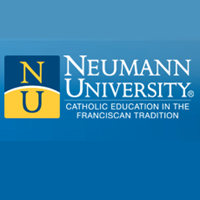Below is a summary of the abstract you submitted. Presenting author(s) is shown in bold.
If any changes need to be made, you can modify the abstract or change the authors.
You can also download a .docx version of this abstract.
If there are any problems, please email Dan at dar78@pitt.edu and he'll take care of them!
This abstract was last modified on May 19, 2021 at 6:04 p.m..

Being an effective scientist requires not only a depth in knowledge in basic scientific principles, but also the emotional courage to navigate what we do not understand. One must be willing and able to integrate past knowledge with new evidence in order to address new scientific problems and questions. One must also have the courage to pose and test ideas that are wrong in the process of determining how a scientific process works. If most students entering our SEA-PHAGES classrooms have been trained to passively apply knowledge to exams and have thinking practices focused on being “right,” how do we approach teaching students how to think openly and flexibly about scientific evidence and aim to propose a reasonable answer based on evidence, perhaps without ever knowing absolutely what the right answer is? We expanded the research component of the SEA-PHAGES course to include reflective writing assignments to help students develop personal, interpersonal, and effective thinking skills and the emotional mindset that are essential to good science. The weekly reflective assignments are designed to serve multiple purposes for both the instructor and the student. For students they encourage heightened awareness of conceptual understanding, gaps in knowledge and the value of specific learning strategies. They promote self-assessment of student learning strategies and their work and allow students to express their emotional response to recent learning experiences. Reflection assignments allow the instructor the opportunity to give students feedback on their understanding of content and their approach to learning. It is also an opportunity to better understand what students are experiencing in class and to offer positive feedback that normalizes their experience in the classroom. The reflective writing tool was used in three SEA-PHAGES Institutes with classroom sizes ranging from 10 to 500 students. In weekly writing assignments, students were asked to describe in detail their most significant learning experience this week, how their emotions helped or hindered their learning experience and how they would apply their new understanding about how they learn to future learning experiences. This course is an intense learning experience and it requires courage and personal risk on the part of the student. Often students have the knowledge to solve a particular problem but they are hesitant to rely on what they know to offer a solution. As instructors we can encourage students to take these intellectual risks. Through reflective assignments, students examine their experiences, recognize the value of taking intellectual risks and receive respectful, honest, and supportive feedback that increases their ability to tolerate their doubts and to persist in the face of adversity.
